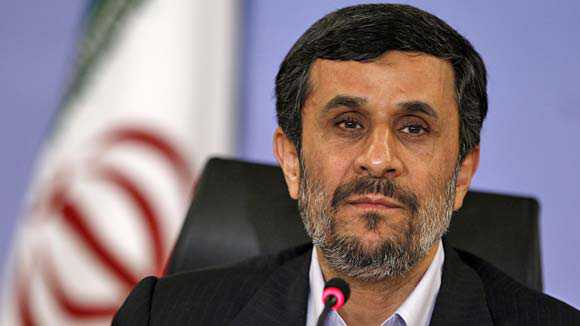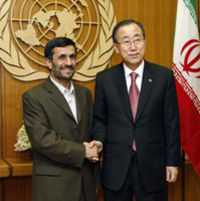“… [I] contradict myself, I am large, I contain multitudes,” wrote Walt Whitman, one of America’s most famous poets. It’s hard not to think of those words while considering Turkish Prime Minister Recep Tayyip Erdogan’s positions.
Erdogan recently slammed the West, saying that imperialist forces would never give up their ambitions. Yet his country agreed to host a missile early warning radar system for NATO, a military alliance to which all of those targeted imperialist countries belong — along with Turkey.
The PKK, a separatist Kurdish terrorist organization, today launched one of its deadliest attacks in decades, and the Erdogan government implicitly slammed the Western powers for making it easy for the PKK to continue its murders. Egemen Bagis, Turkey’s chief EU negotiator in charge of overseeing his country’s entry into the EU, called the EU Ambassador to Turkey, Marc Pierini, to ask the EU countries not to tolerate terrorism and grant it a gray area to manipulate minds. Yet no one called either Iran’s or Syria’s ambassadors to the Turkish Foreign Ministry to discuss the matter.
Furthermore, Turkey’s fight against terrorism, or its attempts to bring a peaceful end to the Kurdish dilemma can not and should not be considered separate than the massive changes occurring at Turkey’s borders. With America seemingly losing its influence in the Middle East and Europe drowning in a terrible economic crisis, the Arab world agonizes over its lack of democracy and economic development. In Tunisia, Egypt and Libya, citizens have overthrown longtime dictators, but the path ahead is unclear. The world seems stuck — politically and economically.
Turkey, with its unique position between the developed and underdeveloped worlds, can and should extend itself to both sides. The problem is that Erdogan’s government is trying too hard to motivate change in the region, with the attitude that it can fix everything. Yet it got lost in its priorities, and its balance. This new Turkish activism in the old Ottoman lands has brought nothing substantive. The government has made it a policy to have “zero problems with neighbors,” but Turkey now has problems with everyone on its borders.
Turkey invested courageously in its relationship with Syria and Iran. Without Erdogan’s support, Syrian President Bashar Assad would never have been able to end his country’s isolation after the assassination of former Lebanese Prime Minister Rafik Hariri. Turkey also tried to bridge the gap between Syria and Israel, but talks collapsed after Israel’s Gaza military operation. Erdogan took that breakdown personally, and cranked up his criticism of Israel.
Erdogan’s strong Islamist roots, coupled with Turkey’s mixed identity as a Western-oriented secular democracy, created conflict about which direction the country should take.
A confidential cable from the U.S. Embassy in Ankara on Feb. 25, 2010 — which was published by Wikileaks — offers a partial answer: Turkey was playing a double game. In the cable, the Undersecretary of the Turkish Foreign Ministry, Feridun Sinirlioglu, “contended Turkey’s diplomatic efforts are beginning to pull Syria out of Iran’s orbit.” Erdogan’s government failed not only in its effort to drive a wedge between the two countries, but also to prevent the Assad regime from murdering its own people. And despite his close personal relationship with Assad, Erdogan now strongly condemns Syria. And despite the United Nations’ failure to impose sanctions on Damascus after its crackdown on anti-government protesters, Erdogan announced that Turkey would put its own sanctions in place. Ankara is also actively engaging with the Syrian opposition. Was Erdogan trying to shore up Turkey’s ties in its Muslim neighborhood to benefit Western interests?
Meanwhile, Iranian President Mahmoud Ahmedinejad has publicly criticized Turkey’s cooperation with NATO. “The shield will be stationed in Turkey mostly to save the Zionists so that [the Western powers] will be able to react and prevent Iran’s missiles from reaching the occupied territories in the event they take a military action against Iran and Iran launches a missile attack reciprocally,” the Iranian president said. The Tehran Times reported on Sept. 28 that “Grand Ayatollah Nasser Makarem Shirazi criticized the stance that Turkey has recently adopted toward regional developments and said, ‘Turkey is stabbing Muslims on the back.’” Yet Turkey and Iran announced this week that they are consulting on building gas-fueled power plants in Iran.
What seems feasible geo-strategically might not necessarily be the same as the actual outcome later. Erdogan is getting tremendous media coverage, but this double game could backfire and hurt Turkey’s regional position and economic wellbeing. In fact, today’s PKK attack should make everyone reconsider as to whether the Erdogan government’s new activism in the Muslim world helped to strengthen its security and national interests.
Further, Erdogan also has said he considers Israel’s nuclear weapons a threat to the region. If Israel has nukes, he argues, why shouldn’t Iran? While this public rhetoric creates the perception that Turkey does not care whether Iran goes nuclear, that certainly isn’t the country’s position. The Erdogan government likes to use Israel as a scapegoat, and it’s dreaming if it thinks that the Jewish state will either sign the Nuclear Non-Proliferation Treaty or give up its arsenal. Turkey also pushed its position after the Gaza flotilla incident, insisting that Israel apologize, pay compensation to the victims’ families and lift the naval blockade of Gaza. The U.N. report — initially prepared at Turkey’s request — found Israel’s position legal.
Turkey faces a real dilemma between stoking its own international popularity and dealing with the domestic implications of its foreign policy. For example, when the 11 Palestinian prisoners including one woman, whom Israel did not want to see free at its borders, arrived to Ankara early Wednesday morning, as part of the swap deal that rescued the captured Israeli soldier Gilad Shalit, the Turkish politicians made it clear that those newly released Palestinians acts against Israel do not constitute “terrorism.” One has to wonder, however, how the Turks will explain it to their younger generations as to how to make the distinction between those acts of violence that could be justified. Turkey once argued that there is no good or bad terrorist, but a terrorist is a terrorist. And Turkey’s growing ties to Hamas and others alike in the region will only make it difficult for the Turkish security forces to give less casualties in the fight against terrorism.
Tulin Daloglu
Free-lance writer, foreign policy analyst
https://www.huffpost.com/entry/turkey-pkk_b_1019553




